The Fierce & The Dead's Matt Stevens picks 10 essential prog-rock albums
"I'm interested in bands that move things forward"
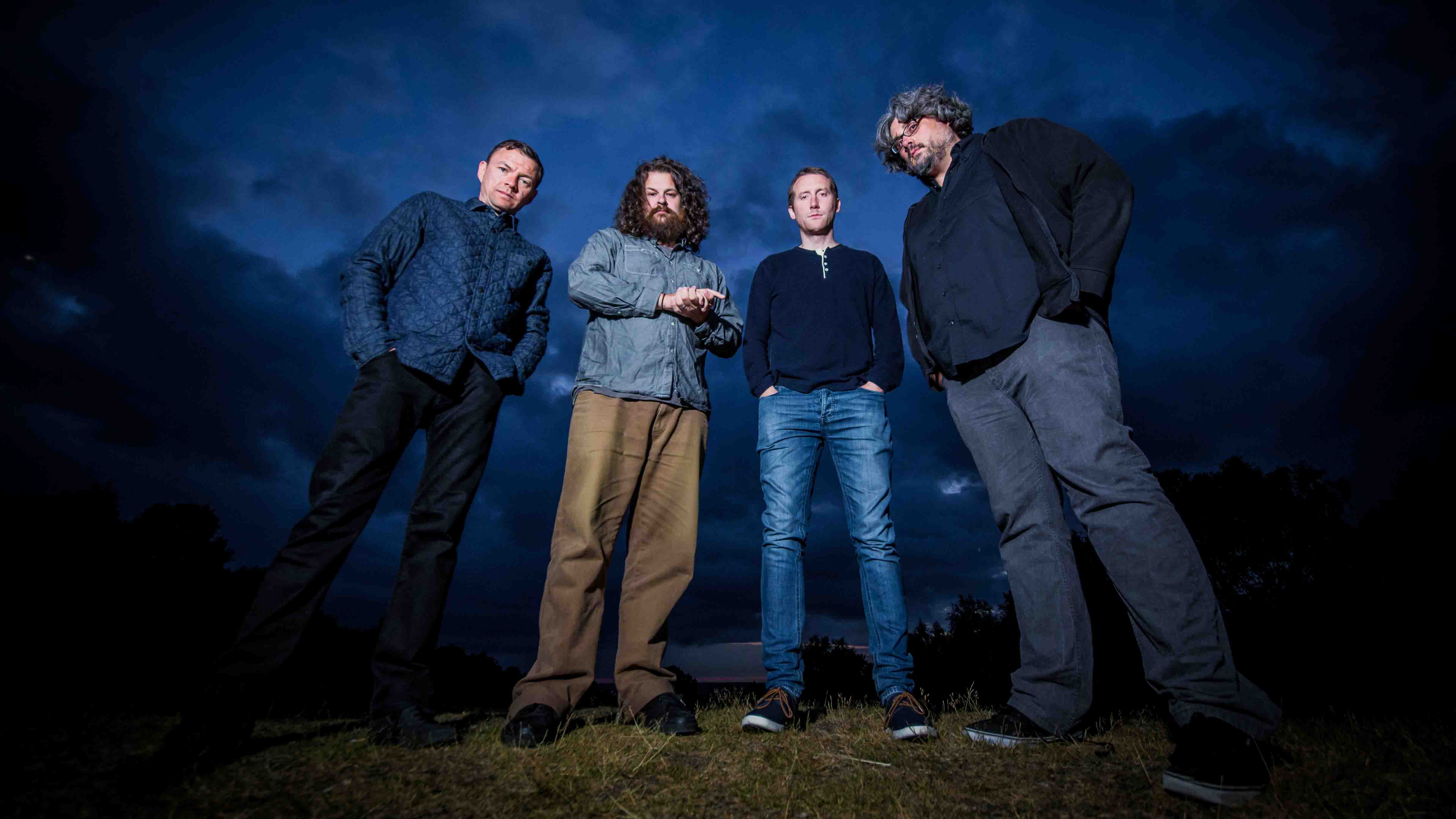
Introduction
Over the past decade or so, instrumental rock – post-rock, prog, math-rock, call it what you will – has been slowly but surely gaining momentum, and London four-piece The Fierce & The Dead have certainly benefitted from the increased awareness.
“I think some people struggle with instrumental music, but people used to struggle with lots of things that are now considered mainstream,” says the band's loop-keen guitarist and progateer Matt Stevens.
“Look at comics: before Alan Moore and Grant Morrison came along, they were considered obscure, but now films based on comics are huge. Festivals like ArcTanGent prove there is a decent audience for interesting, unusual and instrumental music.”
He makes a compelling argument, and it's evidenced in Magnet, the band's new EP and a furious burst of noisy, punk-edged instrumental rock. This refined five-track is just the latest step in the band's constant evolution, says Matt.
“We’ve been together for five years now, and we’ve played a lot gigs and got a really good feel for the music – it just sort of comes together. Then we rework and refine the arrangement over time.
“What comes out the other end is often nothing like what we started with and I think that’s what makes the sound unique: it’s not the result of one person’s idea; it’s a true collaboration. I think that collaboration and chemistry is what makes bands special.”
The band's increasingly cooperative approach further distinguishes TFATD from the one-man acoustic-guitar-and-a-loop-pedal solo albums with which Matt made his name. But while he still has more gigs lined up as a prog troubadour, he knows where his recording focus lies.
“We seem to have quite a bit of momentum at the moment – the records are selling and the gigs are getting bigger. We’re working on the next Fierce And The Dead record and I’m so excited about it; there is a truly joyous feel to our live shows of late and we’re loving working on the new material.
“I believe you have to pursue the music you love, and people will be able to hear that in what you’re doing. People respect honesty and integrity.”
On the following pages, Matt Stevens runs down his 10 essential prog-rock records.
Magnet is released on 14 August, and available to order via Bandcamp.
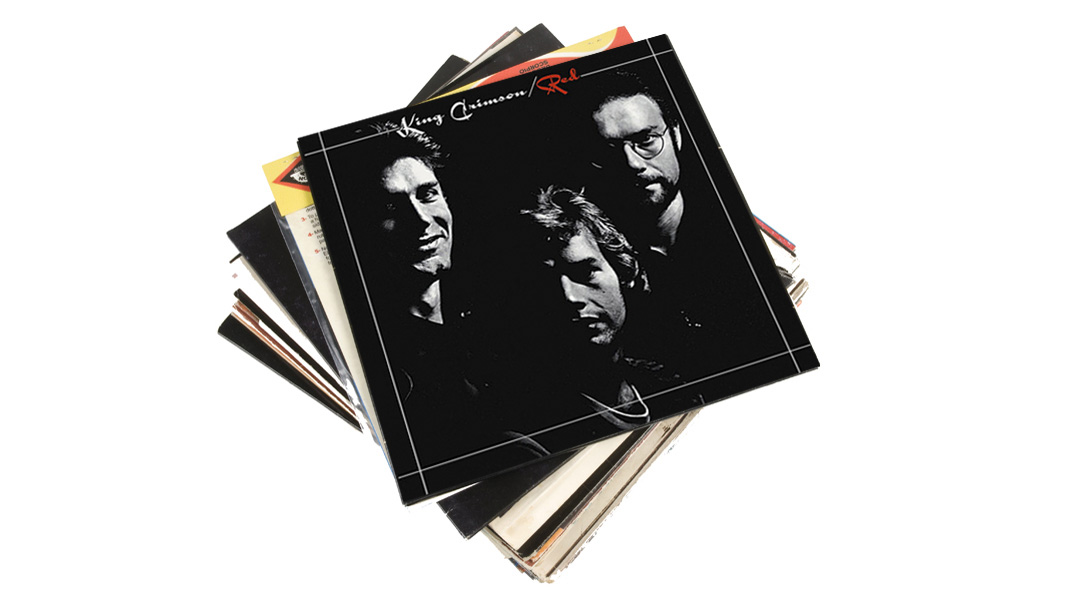
1. King Crimson - Red (1974)
“The opening to the song Red sounds huge, amazing for the time. Massive guitar and bass sounds. The thing here is the difference between music that actually progresses and the more retro prog stuff, which is really 70’s retro symphonic rock music. Which I have nothing against, but it isn’t for me. I think that there is a wider vocabulary that you can use for rock music, taking in influences from minimalism, metal, experimental, pop and around the world. Inspiration is everywhere.”
“I love King Crimson because they actually progressed continually throughout their career. They invented the blueprint for prog with In The Court Of The Crimson King, then they moved forward with the Bruford/Cross/Fripp/Wetton version of the band that took in lots of improv alongside some wonderful composed material.
“By the '80s they were new wave meets Phillip Glass, and then they had elements of industrial metal in the '90s, but all of it uniquely Crimson. A very special band. The song Starless is my all time favourite Crimson tune, especially when the violin melody comes back in at the end, it’s one of my favourite moments in music. I can’t wait to see them play in London next month.”
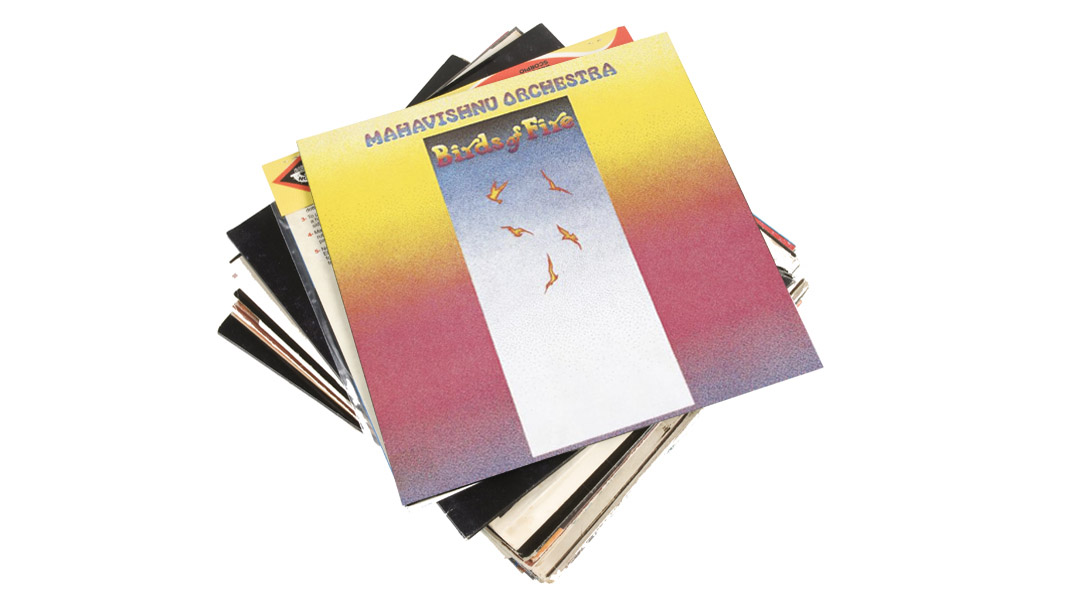
2. The Mahavishnu Orchestra - Birds Of Fire (1973)
“The thing with Mahavishnu is that, for me, it was all about the chords rather than the fantastic musicianship that a lot of people seem to focus on. Those ascending chord sequences with the inversions were a massive inspiration for us. John McLaughlin was a big inspiration for me as a guitar player, and that opened the door for me to discover Miles Davis and John Coltrane.
“The way they brought an element of spirituality to their music was also important: music should be joyous and exciting. The Mahavishnu make the hairs on the back of my neck stand up.”
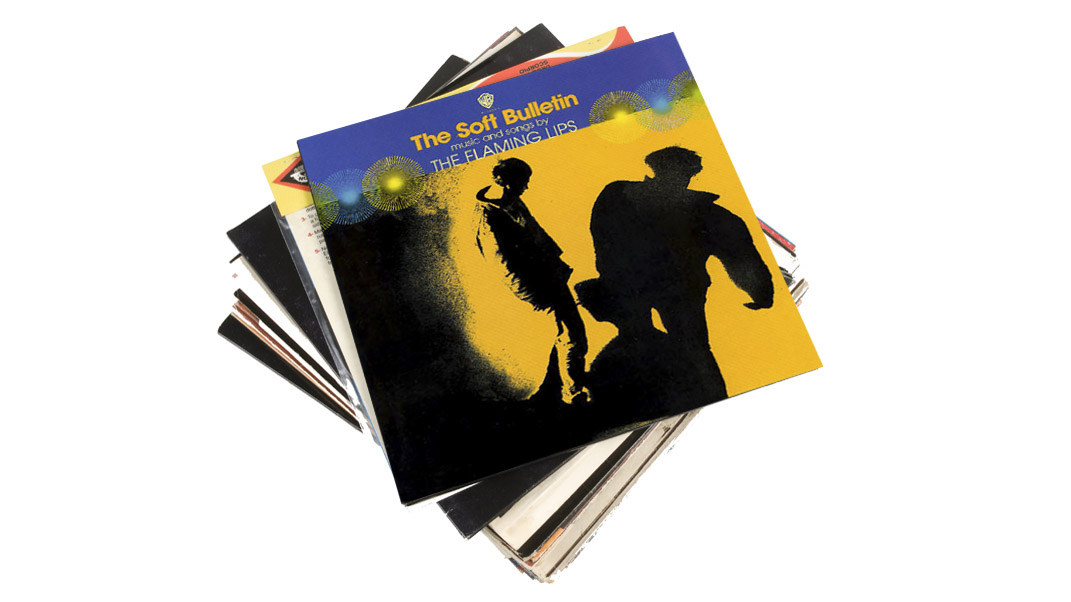
3. The Flaming Lips - The Soft Bulletin (1999)
“As far as I’m concerned, I’m interested in bands that move things forward. So, in effect, Black Flag, Sonic Youth and Hüsker Dü were all progressive rock bands, because they moved forward musically with each album. So when The Flaming Lips brought out The Soft Bulletin, I thought it was so new with those lovely orchestral sampled parts instead of the guitars.
“If anyone doubts The Lips' 'prog credentials', they have also covered Pink Floyd and King Crimson.”
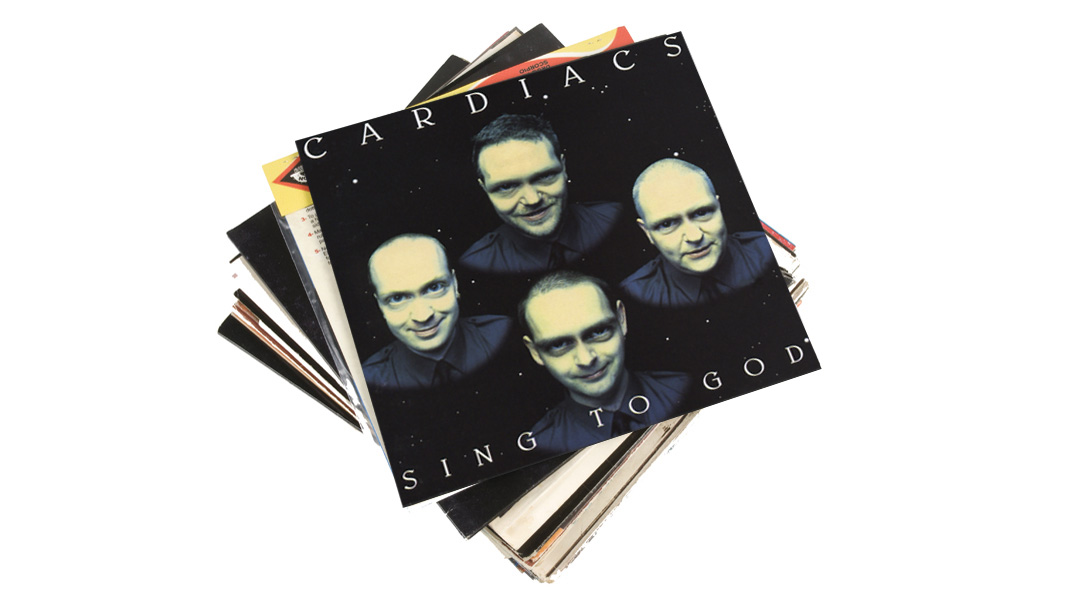
4. Cardiacs - Sing To God (1996)
“Tim Smith is a genius, and Fiery Gun Hand has the best guitar solo ever. Fact. To my eternal shame, I only really discovered Cardiacs when we toured with Knifeworld a few years ago. They’re a wonderful and inspiring band with incredible arrangements.
“Check out the Cardiacs rehearsal videos on YouTube; that’s exactly how good a band can be. And Dirty Boy is huge!”
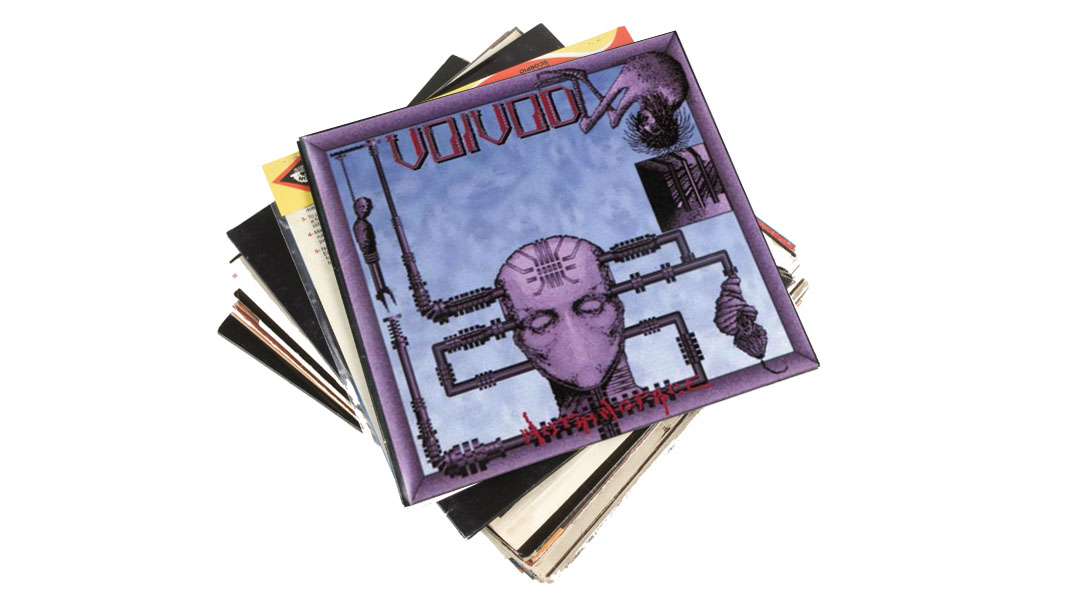
5. Voivod - Nothingface (1989)
“Voivod were a band that truly progressed, moving from a hardcore/thrash sound on their early records onto jangly indie/prog by the early '90s. Piggy’s guitar playing was a massive influence on me; he had his own unique vocabulary of sounds. You can hear the influence of them everywhere now, even on bands like Foo Fighters and especially on bands like us.
“Nothingface features a Pink Floyd cover, but it’s a truly unique album by a unique band.”
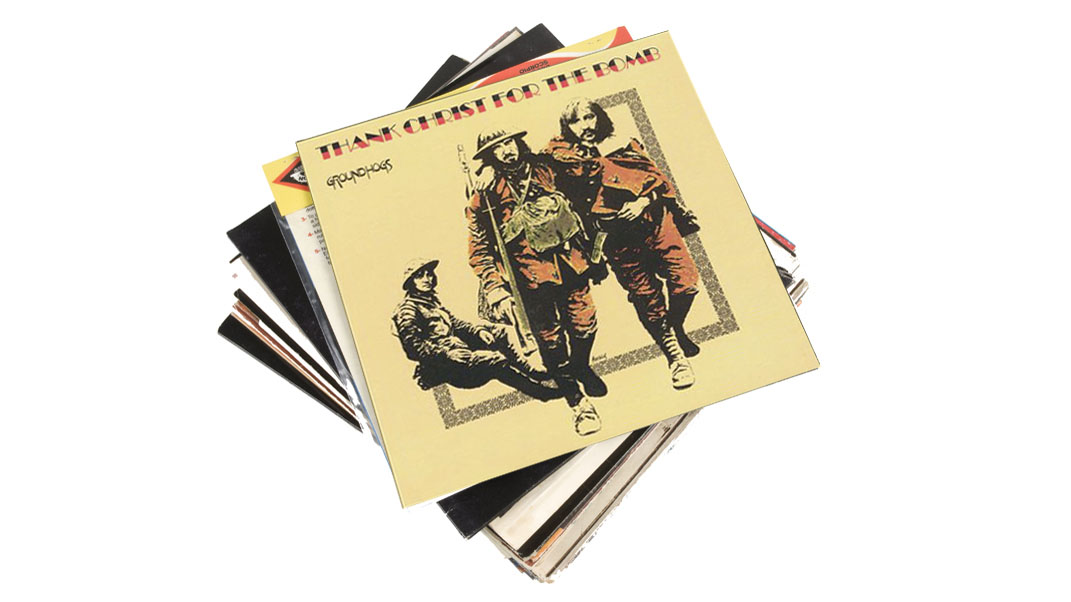
6. Groundhogs - Thank Christ For The Bomb (1970)
“There is a part of this record where there are multiple guitar parts in harmony building up, and it was a huge influence on me. They also used lots of clean guitars and inverted chords with roots other than the root in bass, which I really like.
“It’s easy to think of the Groundhogs as a blues-rock band, but they were truly progressive, evolving right through their golden run of albums from Thank Christ For The Bomb To Split and onto Who Will Save The World? The Mighty Groundhogs.”
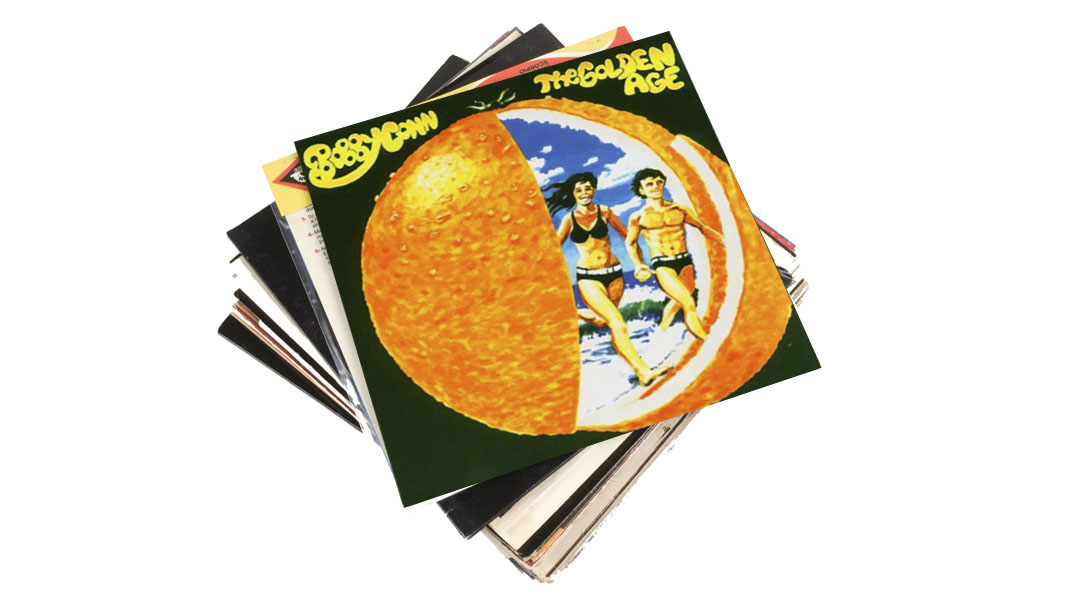
7. Bobby Conn - The Golden Age (2001)
“I love Bobby Conn, and this album is all over the place, from glam to doom metal to weird prog-rock and experimental music. His live show is amazing, if you get a chance to see him.
“It’s a truly inspiring record and how it wasn’t massive I’ll never know – people just didn’t get it. I think people will look back on it as a lost classic in years to come.”
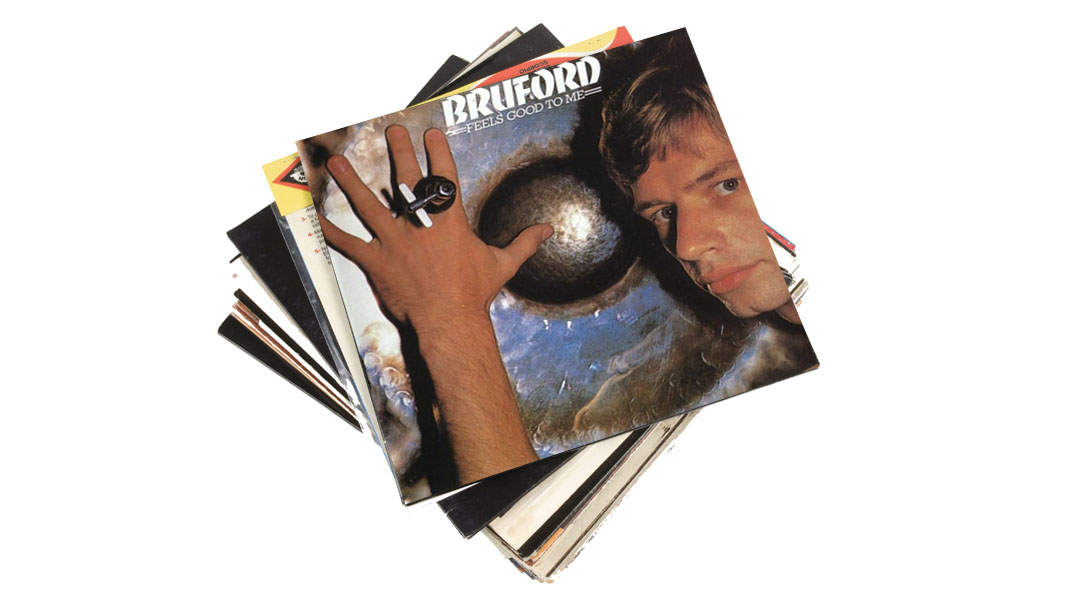
8. Bruford - Feels Good To Me (1978)
“This is what Bill Bruford did after Yes and King Crimson; he’s one of my favourite drummers. I love the arrangements and writing on this, but the real key is the band, and specifically, having the amazing Allan Holdsworth on guitar.
“Holdsworth is like the Ornette Coleman of the guitar: all over the place and brilliantly controlled all at once, incredible solos. I’m not usually interested in guitar solos, but Holdsworth is in a different league. The vocals by Annette Peacock are really unusual and interesting, as are Dave Stewarts very odd yet brilliant keyboard sounds.
“There isn’t another album like it, but weirdly, some modern records like those by Flying Lotus have a little of the same feel. Space fusion?”
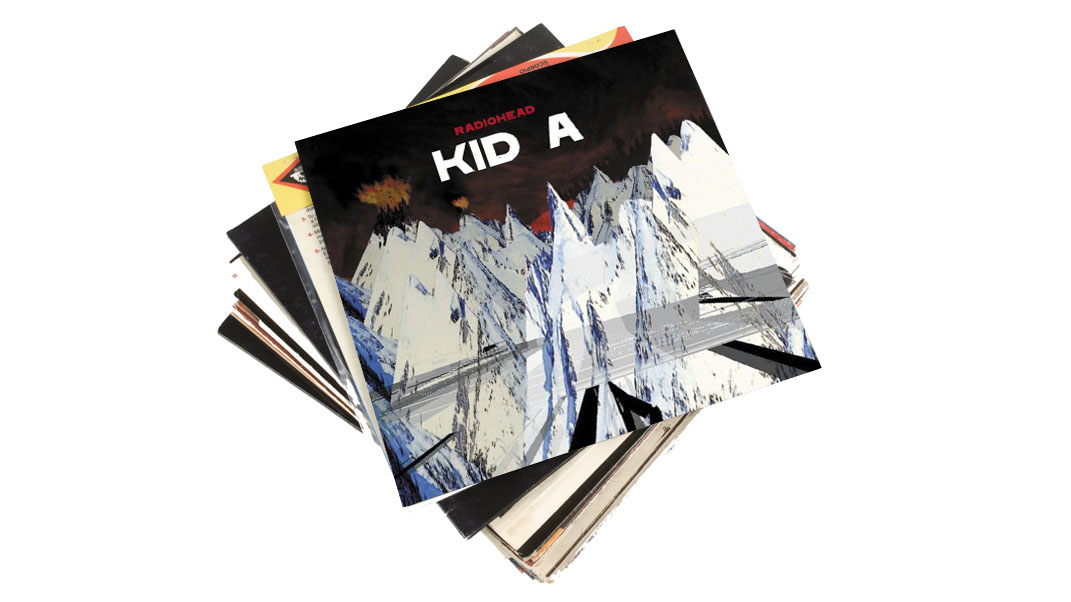
9. Radiohead - Kid A (2000)
“This was bit of a shock for me when I first heard it, as I was so into the more conventional but no less brilliant OK Computer. Here, Radiohead truly 'progressed': they abandoned their previous working method and started again – this is the thing that links all these bands and albums on this list.
“It's a brave experimental pop album, and after a few listens it actually features some very clever pop hooks buried in there. If reminds me of Aphex Twin and Can, yet still went to No 1 in America. That still amazes me. It shows that people like interesting ideas if they just get the chance to hear them.”
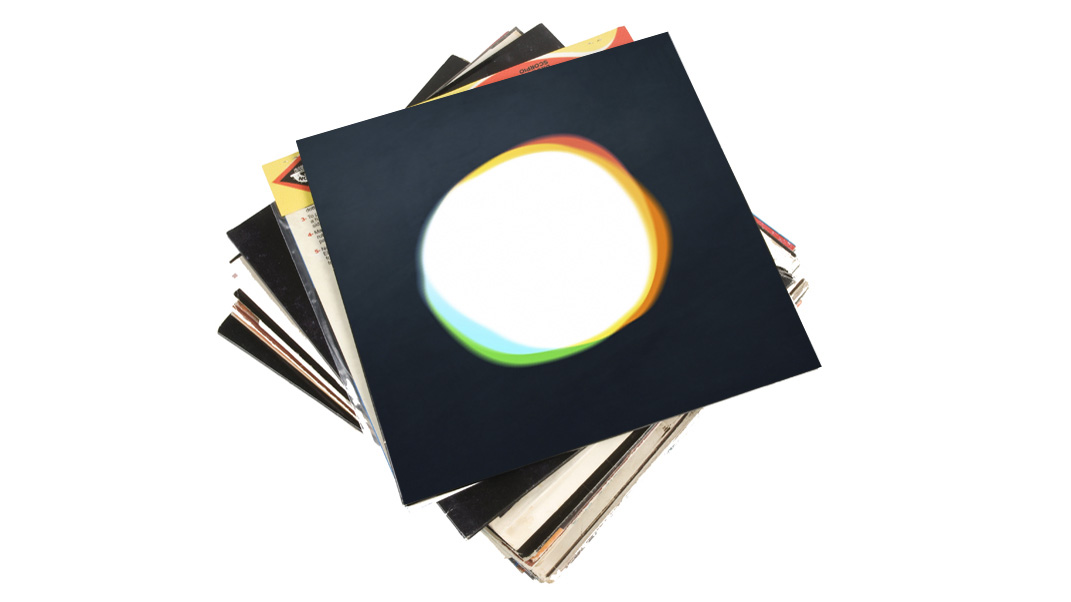
10. Vessels - Dilate (2015)
“Dilate blew me away recently, because it’s a band that started off as pretty much a fairly straight but excellent guitar-driven post-rock band, and then progressed into electronic music with two drummers. One of the best live acts I’ve seen recently. This is a truly inspirational record with lots of ideas.”
Mike is Editor-in-Chief of GuitarWorld.com, in addition to being an offset fiend and recovering pedal addict. He has a master's degree in journalism, and has spent the past decade writing and editing for guitar publications including MusicRadar, Total Guitar and Guitarist, as well as a decade-and-a-half performing in bands of variable genre (and quality). In his free time, you'll find him making progressive instrumental rock under the nom de plume Maebe.
